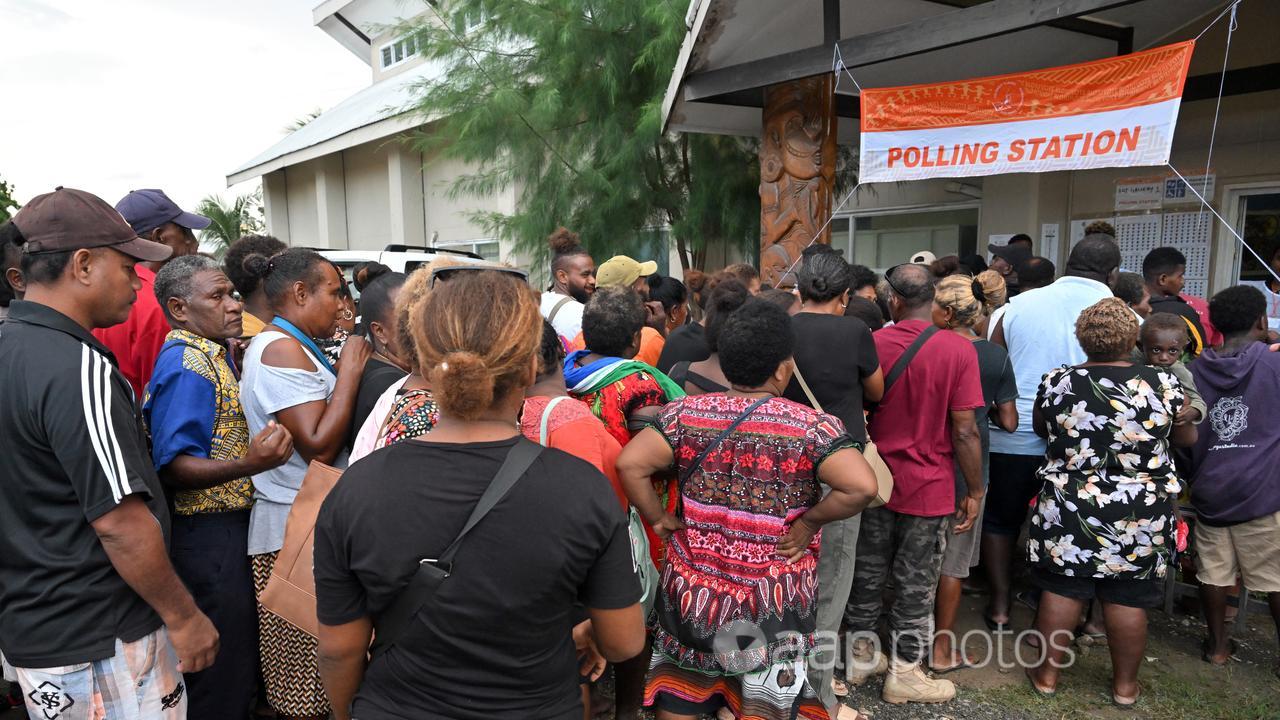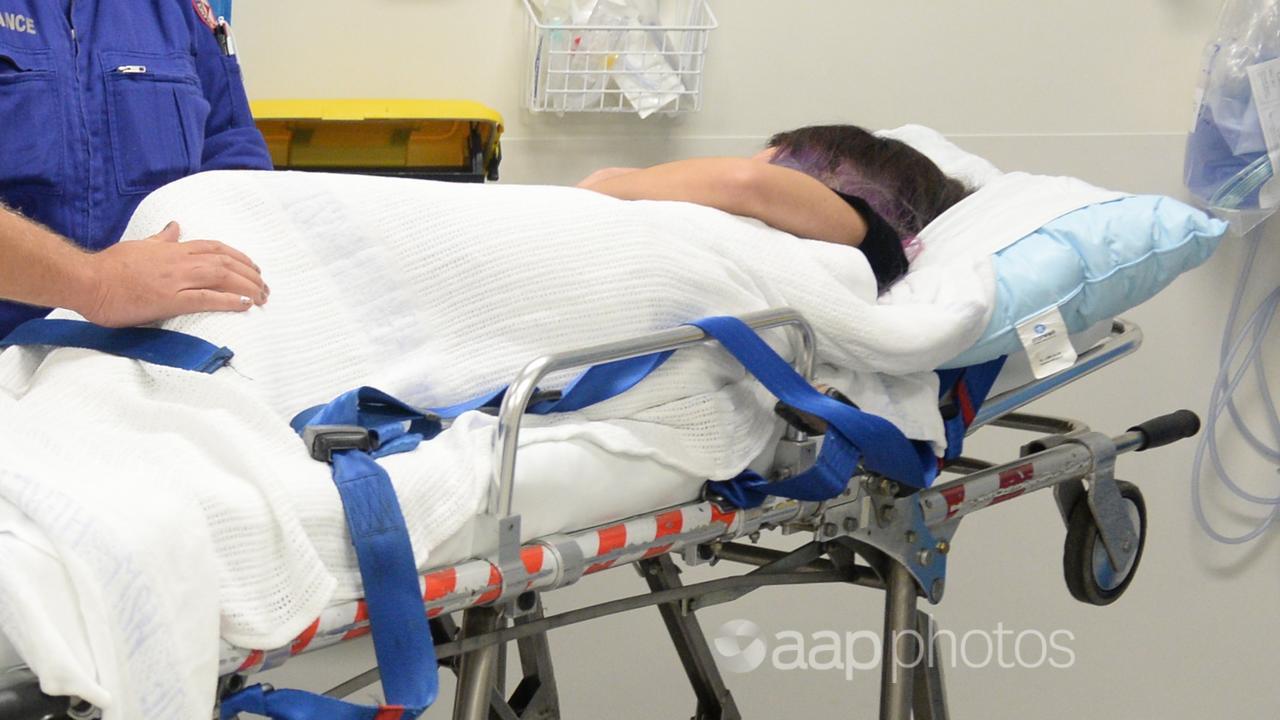Vaccine sceptics are attempting to undermine COVID-19 jabs by claiming up to eight per cent of people in the UK town of Swindon were hospitalised with heart issues in 2021.
The claim is false. A regional national health service (NHS) provider in England, Great Western Hospitals NHS Foundation Trust, published figures showing it provided emergency care to about 19,000 people affected by pericarditis or myocarditis in 2021 .
However, the trust later said the data was wrong due to a spreadsheet “formula error”, which meant the figures were mistakenly inflated.
Corrected figures showed the trust dealt with 86 emergency attendances for pericarditis or myocarditis in 2021, equivalent to about 0.01 per cent of the trust’s catchment population.
The claim was made in a January 8 Instagram post (screenshot here) that stated: “8% of the population (of Swindon) alone have attended hospital for heart related issues.”
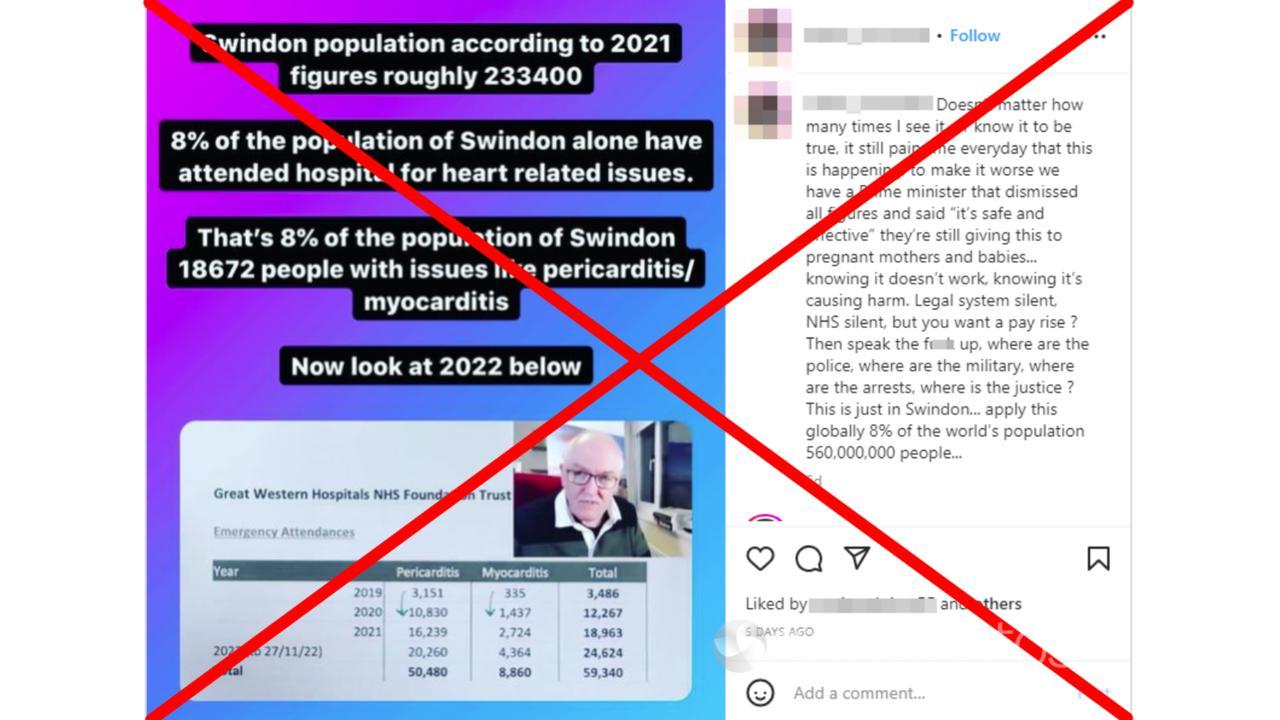
The post’s author also claimed that when the figure was applied globally “8% of the world’s population (is) 560,000,000 people” and suggested COVID vaccines were “causing harm”.
The claim eight per cent of Swindon residents had heart issues in 2021 was based in part on data publicised in a January 7 YouTube video by Dr John Campbell, a retired nurse with a doctorate in philosophy.
In that video, which is no longer available on his YouTube channel but archived here, Dr Campbell claimed 7.2 per cent of people in Swindon were treated for pericarditis or myocarditis in 2021.
Pericarditis is swelling and irritation of the tissue around the heart. Myocarditis is inflammation of the heart muscle.
Dr Campbell’s claim relied on Great Western Hospitals NHS Foundation Trust figures released via a freedom of information (FOI) request that appeared to show it recorded 16,239 emergency attendances for pericarditis in 2021 and 2724 for myocarditis in the same year.
However, on January 8, Dr Campbell published a follow-up video (archived here) in which he explained the trust had retracted the data and issued corrected figures.
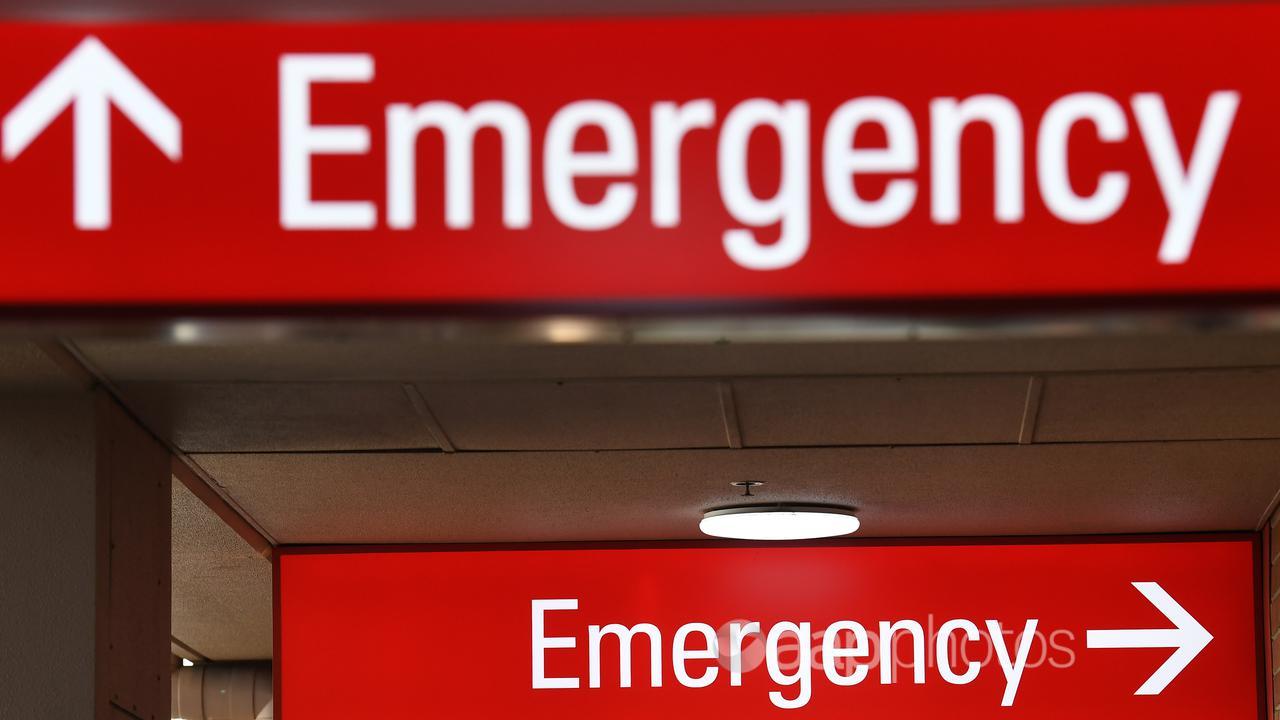
The trust said a formula error meant the figures had become corrupted “during the process of simplifying the data into a pivot table“.
The trust’s corrected figures showed there were only 74 emergency attendances for pericarditis and 12 for myocarditis in 2021.
The trust told AAP FactCheck “emergency attendances” referred to patients who arrived to the emergency department with heart-related conditions and queries of heart inflammation.
The trust’s explanation for the error is published here.
The Instagram post’s claim that eight per cent of Swindon residents presented for heart issues in 2021 includes an additional calculation error.
The percentage was calculated using the town’s official 2021 population figure of 233,400.
However, Great Western Hospitals NHS Foundation Trust services the surrounding region as well as the town of Swindon.
The trust’s LinkedIn page says it serves “a population of over 750,000 across Wiltshire and neighbouring counties”, which would further lower any calculations about the percentage of people it treated for heart issues.
A calculation using the revised figure of 86 pericarditis and myocarditis emergency attendances in 2021 and a catchment population of 750,000 would mean the equivalent of about 0.01 per cent of residents attended hospital for emergency pericarditis or myocarditis treatment, not eight per cent.
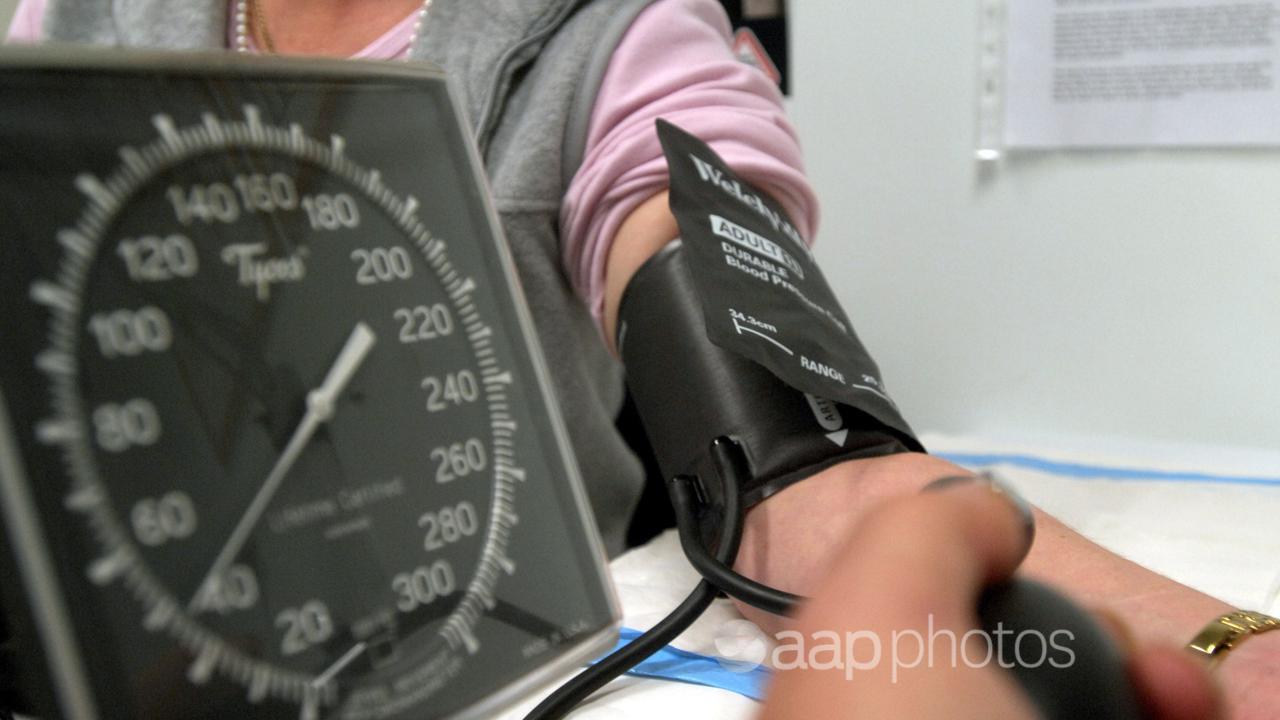
However, it is not possible to say exactly what percentage of people were hospitalised with heart issues in the region as some patients may have been hospitalised multiple times.
The data released through the FOI request also included figures for the number of inpatients treated for heart issues.
Those figures showed the trust discharged 210 patients treated for pericarditis or myocarditis in 2021.
The trust told AAP FactCheck inpatient discharges were higher than the emergency attendances due to differences in diagnosis and coding between emergency and inpatient departments.
There was also some overlap between the two categories because people who arrived at the emergency department may later be admitted to a ward, a trust representative said in an email.
The Verdict
The claim eight per cent of Swindon residents attended hospital with heart issues in 2021 is based on faulty hospital data that has since been corrected.
Great Western Hospitals NHS Foundation Trust initially said it recorded 18,963 emergency attendances for pericarditis or myocarditis in 2021, but later said that figure was a result of a spreadsheet formula error. The true figure for 2021 was 86 emergency attendances, the equivalent of about 0.01 per cent of the trust’s catchment area.
False – The claim is inaccurate.
AAP FactCheck is an accredited member of the International Fact-Checking Network. To keep up with our latest fact checks, follow us on Facebook, Twitter and Instagram.
All information, text and images included on the AAP Websites is for personal use only and may not be re-written, copied, re-sold or re-distributed, framed, linked, shared onto social media or otherwise used whether for compensation of any kind or not, unless you have the prior written permission of AAP. For more information, please refer to our standard terms and conditions.







